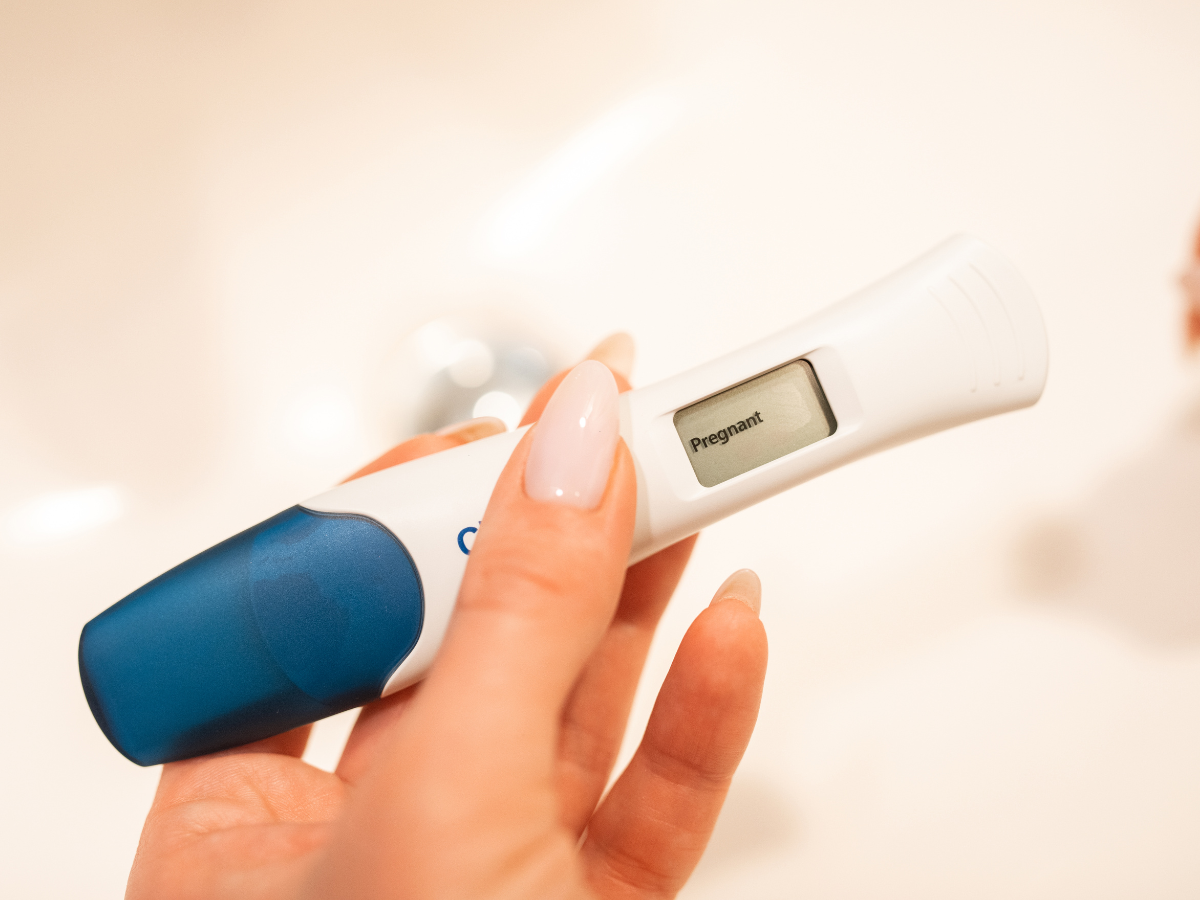As a new mom, there's nothing more heart-wrenching than seeing your little one in discomfort. If your newborn is struggling with gas, know that you're not alone. Many babies experience gas pains due to their immature digestive systems, and it can be quite distressing for both baby and mom. But don't worry—we've got some gentle, effective tips to help ease your baby's gas and bring comfort to your family.
Understanding Baby Gas
Gas in newborns is a common issue, often caused by swallowing air during feeding or crying. This trapped air can lead to painful gas bubbles in your baby’s digestive tract. Here are some signs your baby might be dealing with gas:
- Fussiness or irritability, especially after feedings
- Difficulty sleeping
- Arching of the back
- Bloating or a hard tummy
- Frequent burping or passing gas
Common Causes of Baby Gas
Understanding the root causes can help you take steps to prevent and relieve your baby's gas:
- Swallowing Air: During feeding or crying, babies often swallow air, leading to gas bubbles.
- Immature Digestive Systems: Newborns have developing digestive systems that can struggle with gas.
- Food Sensitivities: Ingredients in formula or foods in a breastfeeding mother's diet can cause gas.
- Bottle Feeding: Sometimes, the type of bottle or nipple can cause a baby to swallow extra air.

How to Minimize a Baby Swallowing Air
Minimizing the amount of air your baby swallows during feedings is essential to reducing gas and discomfort. Here are some effective strategies to help your baby swallow less air, ensuring a happier, more comfortable feeding experience.
Proper Feeding Techniques
-
Good Latch:
- Good News: Ensuring your baby has a proper latch during breastfeeding is one of the best ways to reduce swallowed air. A poor latch can cause your baby to take in excess air, leading to a gassy newborn and infant gas. If you're unsure about your baby's latch, a lactation consultant can provide personalized guidance.
- Less Air: A proper latch means your baby will draw milk efficiently, with less air intake. This can significantly reduce the likelihood of your baby developing gas bubbles.
-
Bottle Feeding:
- Different Bottles: Choosing the right bottle and nipple can make a big difference. Look for bottles designed to minimize air intake, such as those with vent systems that prevent air bubbles from forming. Slow-flow nipples can also help control the amount of air your baby swallows.
- Football Hold: When bottle-feeding, keep the bottle at an angle that fills the nipple completely with milk, ensuring that your baby swallows milk instead of air.
-
Feeding Position:
- Upright Position: Feeding your baby in an upright position helps prevent excess air from being swallowed. Whether breastfeeding or bottle-feeding, keeping your baby more upright can aid in better digestion and reduce gas buildup.
Mom’s Diet and Hydration
- Food Intolerance and Gas-Causing Foods: Certain foods in a mother's diet, like dairy products and cow's milk, can contribute to a baby’s gas. Hydration helps in balancing these dietary elements and may mitigate some of the causes of gas.
- Mom's Diet: Staying hydrated can also help flush out potential allergens or irritants from your system that could otherwise pass into your breast milk and cause food intolerance in your baby.
Effective Tips to Relieve Baby Gas
Here are some tried-and-true methods to help your newborn with gas:
1. Burping Your Baby
Burping helps release the trapped air from your baby’s tummy. Try burping your baby during and after feedings. Use gentle pressure and different positions, like holding your baby upright or over your shoulder.
2. Tummy Time
Tummy time isn't just for strengthening muscles—it also helps move gas bubbles along the digestive tract. Place your baby on their tummy for short periods while they’re awake and supervised.

3. Baby Massage
Gently massaging your baby's belly can help relieve gas. Use a clockwise motion to aid digestion. You can also try the bicycling motion by gently moving your baby’s legs in a circular motion to help move trapped gas.
4. Warm Baths
A warm bath can be very soothing for a gassy baby. The warm water helps relax your baby's muscles and can provide relief from gas pains.
5. Adjust Feeding Techniques
If you’re breastfeeding, ensure your baby has a good latch to prevent swallowing too much air. For bottle-fed babies, try a slow-flow nipple to control the flow of milk and reduce air intake. Also, consider feeding your baby in a more upright position.
6. Check for Food Sensitivities
If you suspect food sensitivities, such as lactose intolerance or a milk allergy, talk to your healthcare provider. They may recommend trying a different formula or adjusting your diet if you’re breastfeeding.

7. Gripe Water and Gas Drops
Over-the-counter remedies like gripe water or gas drops can provide quick relief for some babies.
What is Gripe Water?
Gripe water is a liquid supplement often given to babies to relieve colic and other gastrointestinal discomforts such as gas, teething pain, and hiccups. It typically contains a blend of natural herbs and water. Common ingredients found in gripe water include:
- Ginger: Known for its anti-inflammatory properties.
- Fennel: Helps reduce gas and bloating.
- Chamomile: Aids in calming and soothing.
- Lemon Balm: Known for its calming effects.
Parents often use gripe water because it’s a natural remedy, and many find it effective in soothing their baby’s discomfort. However, it’s important to note that not all gripe water formulations are the same, and it’s crucial to check the ingredients and consult your baby’s healthcare provider before giving gripe water to your newborn.
What are Gas Drops?
Gas drops are over-the-counter medications designed to relieve infants' gas pains and discomfort. The active ingredient in most gas drops is simethicone, which works by breaking up gas bubbles in the stomach and intestines, making it easier for the baby to pass gas. Here are some key points about gas drops:
- Simethicone: This is the main ingredient that helps reduce bloating and discomfort by combining smaller gas bubbles into larger ones that can be passed more easily.
- Usage: Gas drops can be mixed with formula, breast milk, or given directly to the baby using the provided dropper.
- Safety: Gas drops are generally considered safe for babies, but it’s always best to consult your healthcare provider before starting any new medication.
Key Differences and Considerations
- Natural vs. Medicinal: Gripe water is often marketed as a natural remedy due to its herbal ingredients, whereas gas drops contain simethicone, a medication specifically designed to target gas bubbles.
- Effectiveness: The effectiveness of both gripe water and gas drops can vary from baby to baby. Some parents find that gripe water is more effective, while others prefer gas drops.
- Consultation: Always check with your baby’s healthcare provider before introducing any new remedy, whether it’s gripe water or gas drops, to ensure it’s safe and appropriate for your baby’s specific needs.
Using either of these remedies can help alleviate your baby's gas discomfort, but always remember to monitor your baby’s reaction and consult with your healthcare provider if you have any concerns.
When to Seek Professional Help
If your baby’s gas issues persist or are accompanied by other symptoms like poor weight gain, excessive vomiting, or severe abdominal pain, it’s important to seek professional medical advice. Your healthcare provider can help determine if there’s an underlying medical condition that needs attention.
Why EasyJug is the Best Water Bottle for Breastfeeding Moms and How It Helps with Baby's Gas
Breastfeeding moms need to stay hydrated to maintain a healthy milk supply, and EasyJug is designed to make hydration simple and efficient. Here’s why EasyJug stands out and how it can indirectly help with your baby’s gas issues:
Benefits of EasyJug for Breastfeeding Moms
-
Convenient Design:
- EasyJug's ergonomic design makes it easy to drink from while holding your baby, ensuring you stay hydrated without any hassle.
-
Large Capacity:
- With its large capacity, EasyJug reduces the need for frequent refills, making it easier to meet your daily hydration needs.
-
Easy to Use:
- The extra long straw make drinking water easy, especially when you have your hands full with a newborn.
-
BPA-Free and Safe:
- Made from BPA-free materials, EasyJug ensures that your water stays pure and safe for you and your baby.
How Staying Hydrated Helps with Baby's Gas
-
Maintains Milk Supply:
- Proper hydration is crucial for maintaining a steady milk supply. A well-hydrated mom can produce more milk, reducing the chances of your baby swallowing excess air due to insufficient milk flow, which can cause gas.
-
Supports Your Health:
- Hydration keeps you energized and healthy, enabling you to better care for your baby and respond to their needs effectively.
-
Ensures Adequate Milk Intake:
- By helping you stay hydrated, EasyJug supports adequate milk production, ensuring your baby gets the necessary nutrients without gulping air, which can reduce gas issues.
-
Minimizes Gas Discomfort:
- Proper hydration can help your baby’s digestive system function more smoothly, potentially reducing gas buildup and discomfort.
-
Encourages Consistent Feeding:
- With EasyJug, you can drink water while you keep your hands on your baby. Holding your baby and supporting them with their latch can reduce the chance of them swallowing air.
By choosing EasyJug, you’re not only investing in your hydration but also indirectly supporting your baby’s digestive health, potentially reducing the chances of gas and discomfort.
Conclusion
Helping your newborn with gas is a journey that involves understanding their unique needs and applying gentle, effective strategies. From ensuring a proper latch and using the right feeding techniques to staying well-hydrated with EasyJug, there are numerous ways to ease your baby's discomfort and promote a happier, healthier feeding experience. Remember, each baby is different, so it may take some trial and error to find what works best for your little one. Stay patient, seek professional advice when needed, and trust that you are doing an amazing job as a new mom. With these tips and the right support, you can help your baby feel more comfortable and enjoy the precious moments of early parenthood.






